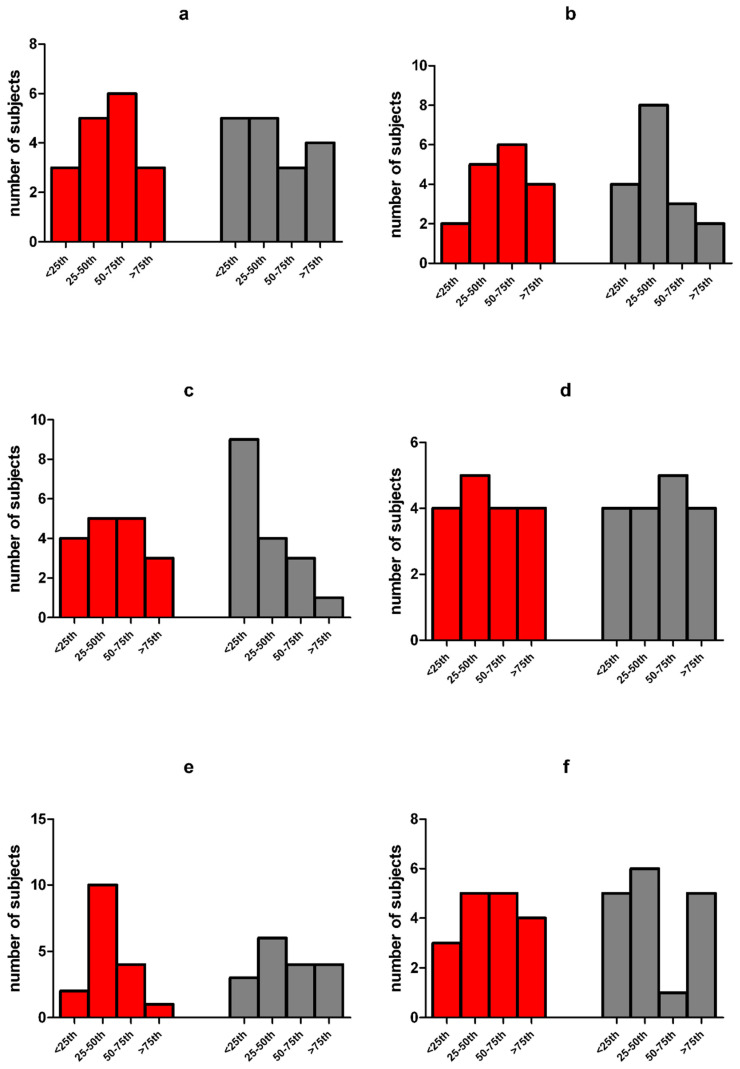Figure 3.
(a–f) Distribution of PCD patients and controls in the classes of percentile of PSGWBI subscales. Legend: the psychological general well-being index (PSGWBI) questionnaire was administered to primary ciliary dyskinesia (PCD) patients (n = 17) and healthy controls (n = 17) older than 15 years. The PSGWBI is organized in six subscales: (a) anxiety; (b) depression; (c) well-being; (d) self-control; (e) general health; (f) vitality. Classes of percentile were defined for subscales, according to gender and age, as follows: <25th pc: ‘severe distress’; between 25th and 50th percentile: ‘moderate distress’; between 50th and 75th percentile: ‘no distress’; >75th percentile: ‘positive well-being’. Red columns indicate PCD patients and grey columns indicate healthy controls. No significant difference between the number of PCD patients and controls with subscale scores <25th percentile was found (a–f). Fewer PCD subjects than controls reported (a) anxiety, (b) depression, (c) difficulties relating well-being or (f) vitality feelings, whereas more difficulties were with (d) self-control and (e) general health were found in a higher proportion of PCD cases than in controls.

